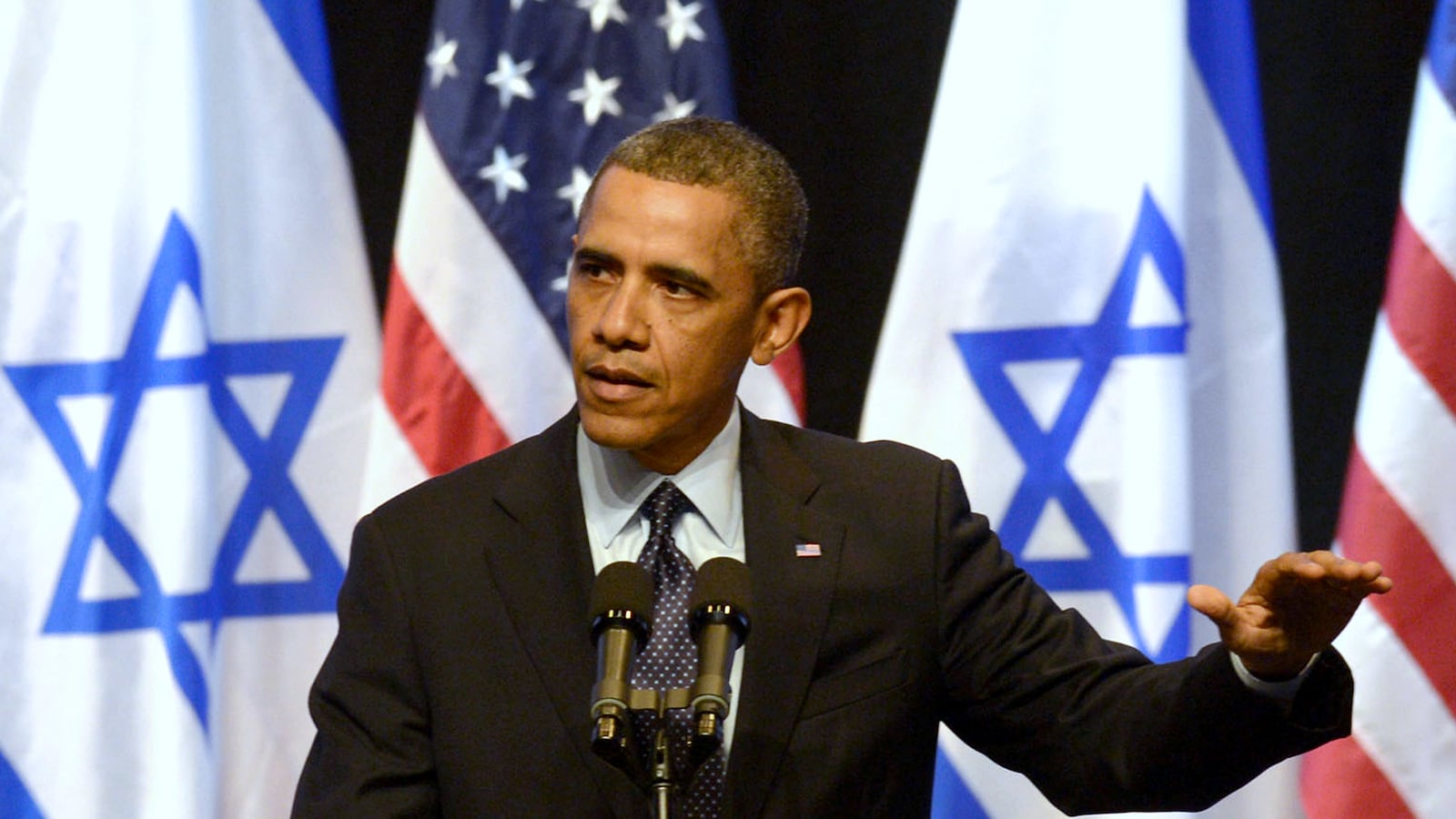On Twitter, Blake Hounshell asked if President Barack Obama’s trip to Israel was a “huge” success or not. I think we first have to define what we mean by “success.” But by the definition that Obama himself set out, albeit vaguely, and the unforeseen consequences, I think it was, certainly, a “huge success.”
In fact, it was this very vagueness that underlined the success. By downplaying expectations of any dramatic new initiatives on any policy issue, Obama laid the groundwork for excitement whenever he did touch on these (whether Iran or the peace process). By pulling back from an active American role, he also helped Israelis feel in control of their foreign policy at a time when the country has been subject to intense demands from all corners about how to behave and what to do regarding Iran or the Palestinians.

He washed away some of the personal tension that existed between him and Prime Minister Benjamin Netanyahu, which in turn builds the necessary capital for coordinating with him on Iran and pressing him on the peace process.
Obama gave Israelis the impression that he does care about them, he is looking out for their security, and he does understand them. His speeches at the Jerusalem Convention Center and at Yad Vashem both invoked the Jewish past and connection to the Land of Israel, the insecurity that drives much Israeli behavior, and the rightness of their Zionism. To this end he also visited all the right sites in Israel, tying together the Jewish-Israeli experience over centuries.
In a country with such fractured political and ideological opinions, Obama could never make everybody happy. But there was enough there for most: for leftists he laid heavy emphasis on the immorality and injustice of the occupation. For the right he repeatedly committed himself to Israel’s security, implicitly noting that it’s not just about the balance of material forces but also about perceptions and history. (Of course, his comments regarding the former undermined some of the goodwill his comments for the latter might have generated.)
We cannot judge the success of the trip by looking at the Palestinian reaction simply because the trip wasn’t about them. There was a small detour—and that’s what it was—to visit President Mahmoud Abbas and then Bethlehem, and this gave the impression of American support for the Palestinian Authority. But Obama wasn’t out to reassure the Palestinians. Fair or not, Washington thinks that it’s Israel that needs to be warmed up for negotiations; the Palestinians will probably come along (perhaps with some necessary arm-twisting) because they aren’t in a position to do anything but. And they can’t be bought off with a few speeches and visits to sites of identity because the occupation will still be there once Obama leaves.
But in his Jerusalem speech Obama did humanize the Palestinians in a way they rarely have been in Israeli political discourse. This might not seem like much from Hebron, but it can make a difference among the Israeli public, which will be needed to pressure Bibi into making any progress in peace talks.
Unexpectedly, Obama also brokered a reconciliation between Bibi and Turkish Prime Minister Recep Tayyip Erdoğan. Not only did they speak by phone, but Bibi apologized to Erdoğan for the deaths of Turkish citizens killed during the Mavi Marmara affair. The repairing of that relationship is good for everybody, but it also enhances Obama’s position as facilitator of regional diplomacy. This is necessary as the American position in the Middle East changes in the wake of the Arab Awakening, and as things with Iran come to a head.
So yes, this was a successful visit in the short term. In the longer term it’s obviously too early to say: regional events can take an unanticipated turn with unforeseen consequences. The politics of the new Israeli government have yet to play out, and it’s not clear what that will mean for Israeli foreign policy. But for now, Obama can deservedly bask in the glow of his trip to Israel—at least until his return to the drama of Washington politics snaps him out of it.




